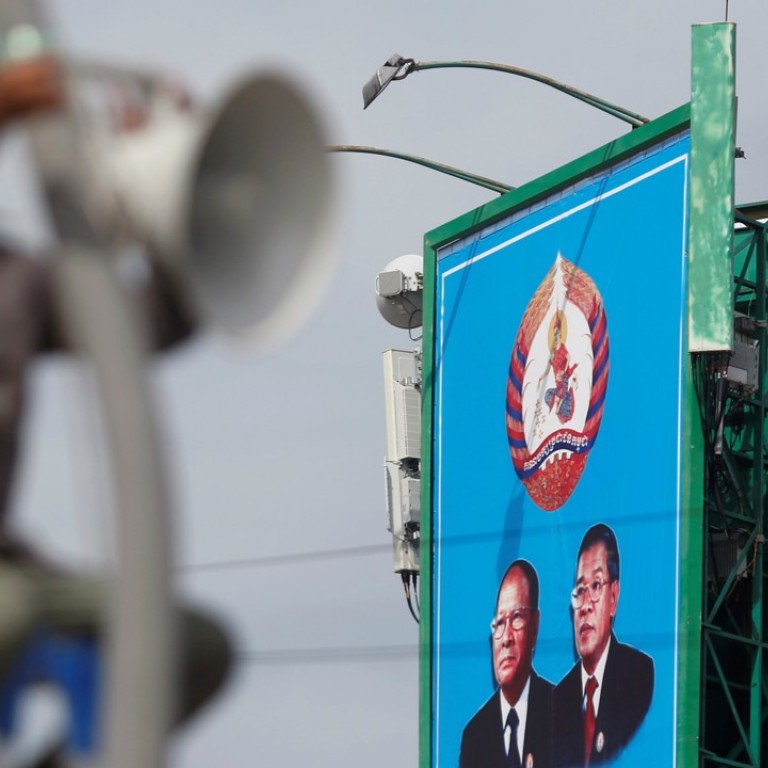
Cambodia’s election: against Hun Sen, only way to win is to not vote
With no independent observers, ‘monitors’ who intimidate voters and ballot-stuffing all on the table, the prime minister appears to be competing only with credibility itself – and he’s losing
With his own son leading an “election monitoring group” that is strong-arming villagers to vote for him, it’s clear Prime Minister Hun Sen now owns a rigged election – a pyrrhic victory in the making – unless he can somehow claim legitimacy through a healthy-looking turnout at the polls.
Radio Free Asia has reported that members of the Union of Youth Federation of Cambodia (UYFC), chaired by Hun Sen’s son Hun Many, threatened villagers in the rural Mondulkiri province, claiming that government services would be withheld from boycotters.
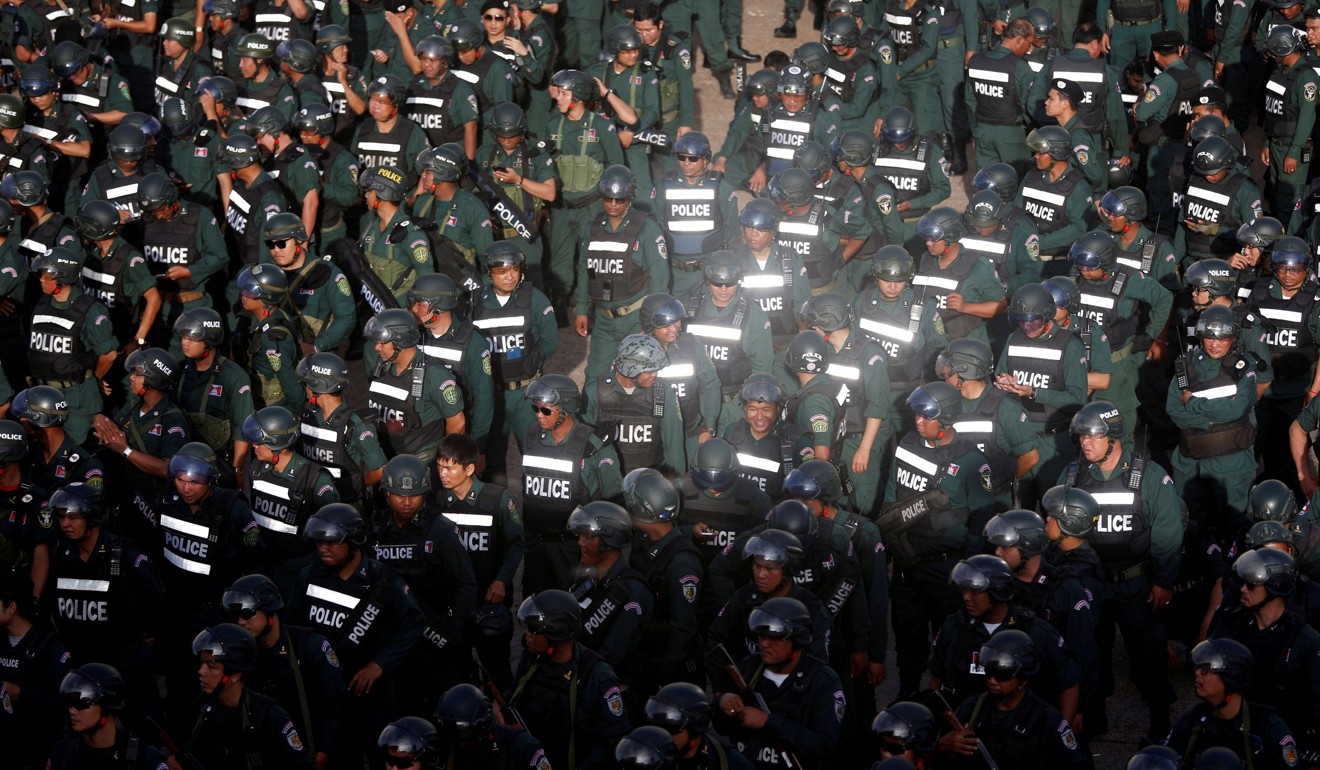
Going into this week’s election, there is also no viable opposition party, no neutral National Election Committee (NEC), and the US has already warned that it might not accept the results.
A Mahathir-like figure, a car crash, and Cambodia’s ‘election’
Human Rights Watch issued a statement declaring the elections “not genuine” before the poll took place.
By contrast, the 2017 commune elections were widely seen as the freest and fairest polls in the country’s history. While there were some irregularities, numerous independent election observers, a neutral NEC, the opposition party and the international community all signed off on the results.
But a lot has changed in a year.
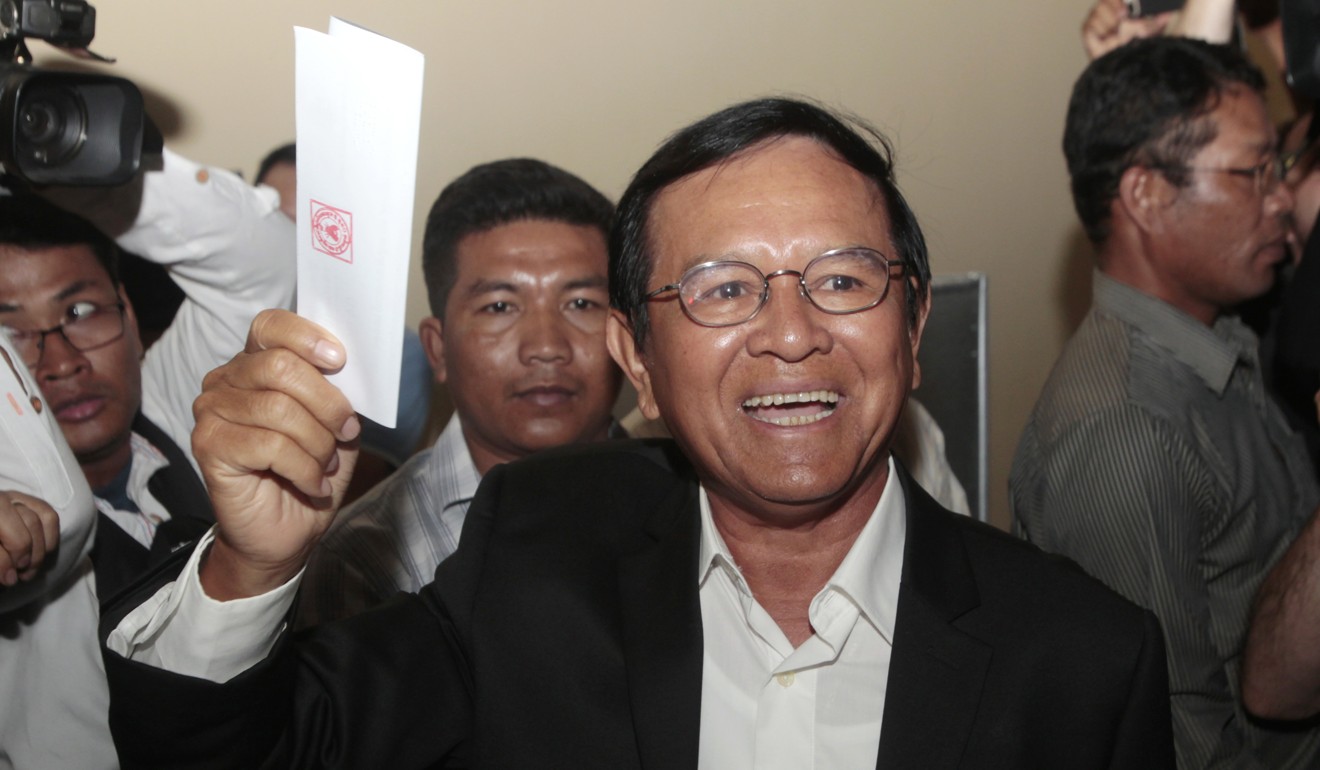
The opposition Cambodia National Rescue Party (CNRP), which won nearly 44 per cent of the popular vote and made unprecedented gains in 2017, was dissolved for allegedly attempting to overthrow the government. Its leader, Kem Sokha, was imprisoned on treason charges.
After the dissolution, three of the CNRP’s four representatives in the NEC resigned. One of their replacements has strong ties to the ruling Cambodian People’s Party, giving the CPP five seats in the nine-person election body.
Welcome to Asia’s newest one-party state
Only three nations – China, Myanmar and Singapore – accepted an expressed invitation and sent a few representatives to monitor the vote. Cambodia’s main local independent election observers – Comfrel, Nicfec, and Transparency International – all said they would not be observing the election.
Election expert Yoeurng Sotheara, formerly with Comfrel, said this vote is unlike any he has seen before in Cambodia. “The atmosphere of the election is totally different from previous elections from 1998,” he said.
He believes the CNRP’s dissolution is the “main reason” so many regular monitors are withdrawing this year, but added that civil society actors are also fearful of being caught in the government’s crackdown.
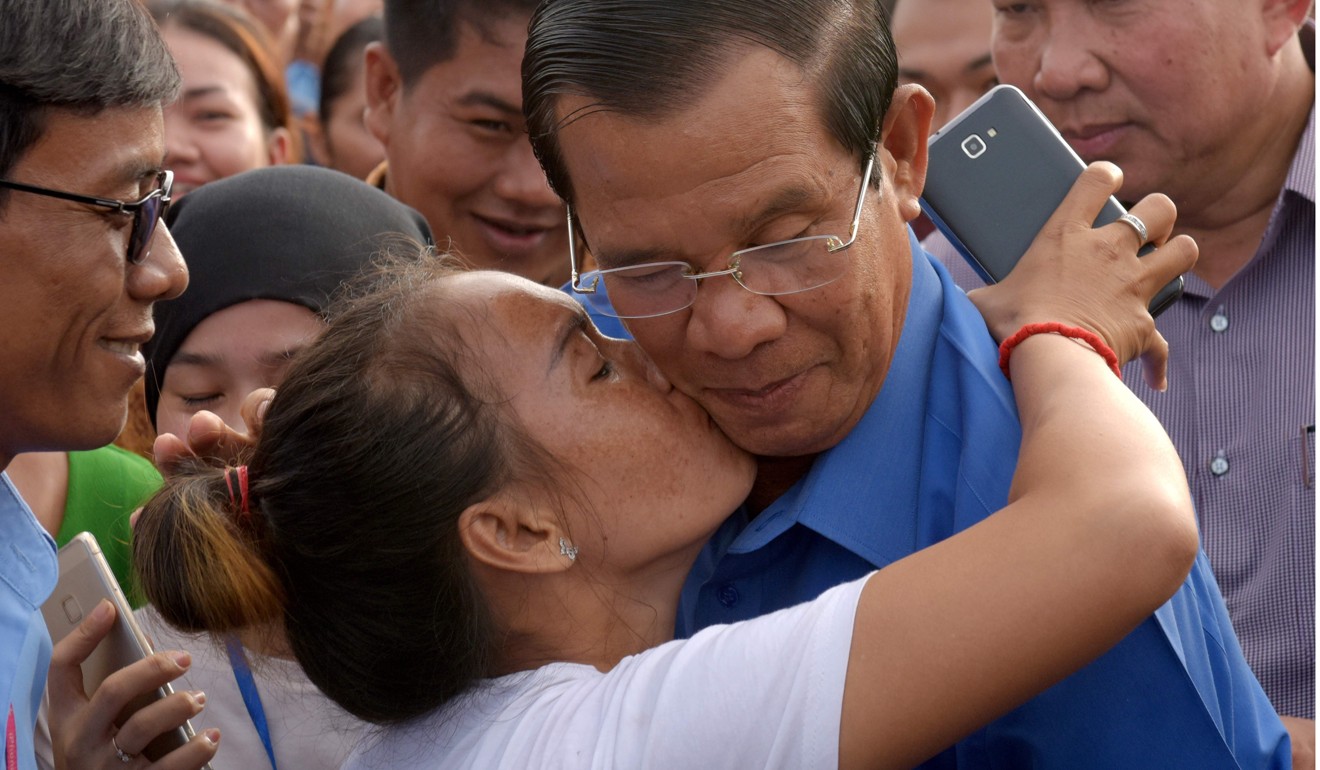
“It’s maybe a question of their reputation in the future,” he added, saying that local monitors would have a hard time explaining to the public why they participated in such an unfair vote.
At a rally on Friday, Hun Sen predicted victory and boasted of a successful campaign to “eliminate traitors”.
Meanwhile, Japan joined the United States and the European Union in announcing that it would not send monitors this year.
Japan has been caught in the middle of the West’s power struggle with China over Cambodia. Japan is the only Western nation continuing to fund Cambodia’s election, but even it will not bother monitoring the vote.
US firm alleges Chinese hacking of Cambodian government
“Japan is taking a very balanced position,” said Sotheara, claiming that Japan doesn’t want to cede Cambodia entirely to China’s influence, but also must protect its “image” in the democratic world.
The US has been Hun Sen’s strongest critic, and this week a bill imposing sanctions passed the House of Representatives. If approved by the Senate, the bill will ban individuals deemed responsible for undermining Cambodia’s democracy from entering the US and freeze any American assets they might possess.
In a statement, Foreign Affairs Committee Chairman Ed Royce said Hun Sen “completely dismembered the political system in Cambodia”.
Along with Hun Sen, the statement recommended individual sanctions against many other top Cambodian politicians, including Interior Minister Sar Kheng, Defence Minister Tea Banh, Foreign Affairs Minister Prak Sokhonn, and the prime minister’s children Hun Manet and Hun Mana.
The lack of credible observers might seem irrelevant given that the outcome of the election is virtually guaranteed, but as Hun Sen struggles to maintain legitimacy both domestically and abroad, voter turnout has taken on more importance.
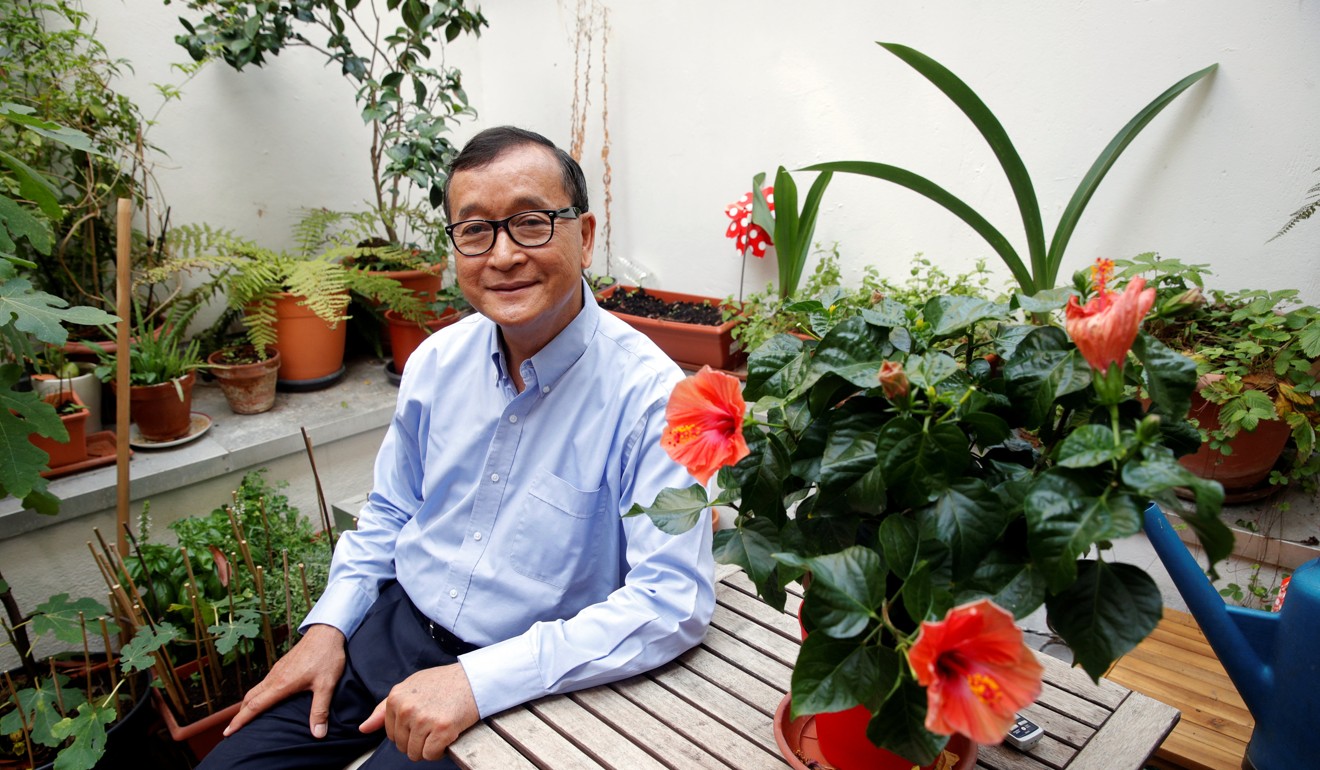
CNRP co-founder Sam Rainsy, who lives in exile in France, has asked his supporters to boycott the election to further damage its integrity.
“Without the participation of the CNRP as the only credible opposition party, the election will already lack legitimacy. A second and fatal blow to legitimacy would be an abnormally low voter turnout,” he said.
While there will be no independent observers, monitors hand-picked by the government will attend. This includes Hun Many’s UYFC.
As anti-US feeling grows in Cambodia, China cashes in
In an interview with Reuters, Australian academic Lee Morgenbesser said the UYFC was pro-government and Hun Sen was dependent on voter turnout for legitimacy.
In response, government spokesman Phay Siphan blasted him as an “enemy to the Cambodian people”.
Morgenbesser, who specialises in authoritarian regimes and unfair elections, has not retracted his analysis.
“The overarching emphasis on voter turnout is unusual for Cambodia elections. The goal is to reposition citizen participation as the primary foundation for legitimacy, thereby replacing party competition,” he said in a recent email.
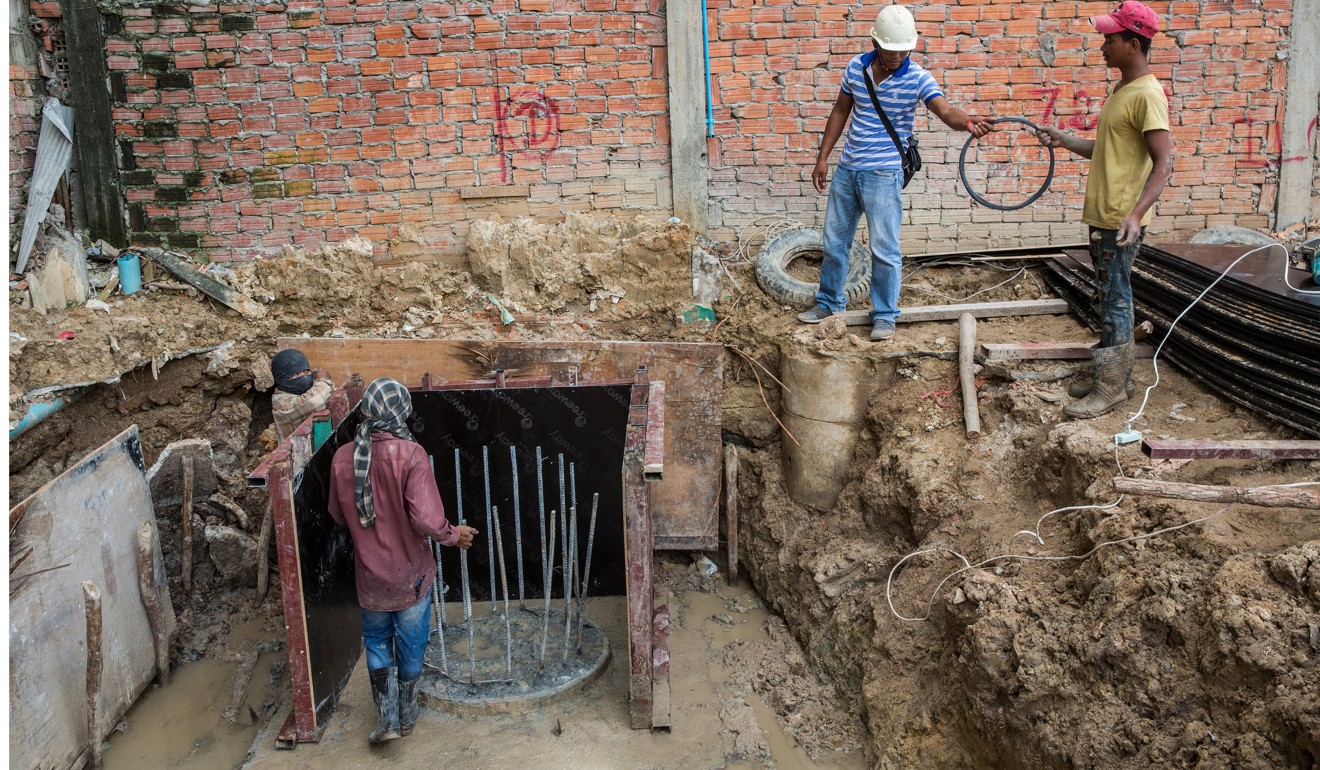
Morgenbesser added that while ballot stuffing is not common in Cambodian elections, the NEC might simply “inflate the turnout figures arbitrarily”.
Sotheara expects the election monitors invited by the government to simply rubber stamp the results rather than evaluate the election critically.
Cambodia’s dirty dozen: Hun Sen rules with army of usual suspects
But Hun Many’s UYFC is probably more than just an illegitimate election monitoring team. Having agents affiliated with the prime minister’s family in every voting booth could instead be construed as a form of intimidation. Hun Many insists, however, that nothing untoward is happening.
“I do not believe that in any country it is right to pressure people to vote and it is not happening in Cambodia,” he said in a recent interview.
Political parties are also allowed to send their own observers to polling stations, but just as the CNRP was the only party that could realistically challenge the CPP, it was also the only group with the manpower to observe the polls.
While the CPP will have almost 23,000 observers on election day, the next most represented party, Funcinpec, will have just 12,818.
“They could do whatever they want, including ballot stuffing, at the polling stations without the presence of credible observers or CNRP agents,” said Rainsy. ■
